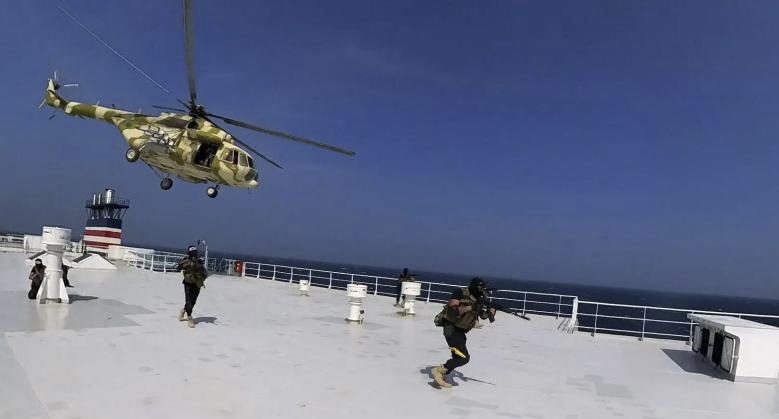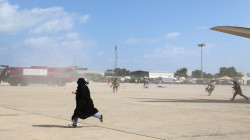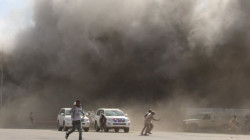Ansarallah announces escalation targeting maritime navigation in the Mediterranean

Shafaq News/ On Friday, the Yemeni Ansarallah (Houthis) declared an escalation aimed at maritime navigation in multiple regions, including the Mediterranean Sea, Red Sea, Arabian Sea, and Indian Ocean.
The group's military spokesperson, Yahya Saree, stated, "The Yemeni armed forces declare the start of implementing the fourth escalation phase."
The escalation, as outlined by Saree, involves targeting vessels violating Israeli navigation restrictions and "heading to occupied Palestinian ports in the Mediterranean Sea across various affected areas."
"In case the Israeli enemy initiates a hostile military operation in Rafah, the Yemeni armed forces will impose comprehensive sanctions on all ships of companies involved in supply and entry to the occupied Palestinian ports," Saree affirmed.
"We will not hesitate to prepare for broader and stronger escalation stages until the aggression ceases and the siege is lifted from the Palestinian people in Gaza." He concluded.
Saree speech came while hundreds of thousands of Yemenis flocked the streets in solidarity with the Palestinian cause and called for a ceasefire in the Gaza Strip, where Israel killed more than 34,500.
The situation becomes more complicated in the Red Sea, with Houthis insisting on blocking the passage in front of all vessels heading to Israel or relating to it.
The Ansarallah have been launching frequent drone and missile attacks on international commercial ships in the Gulf of Aden since mid-November 2023. They claim solidarity with Palestinians facing Israel's actions in Gaza. These near-daily assaults have compelled companies to redirect their ships through longer and more expensive routes around Africa, sparking concerns about potential escalation in the Middle East amid the ongoing war between Israel and Hamas.
The assaults on shipping have raised the profile of the Houthis, who are members of Islam's minority Shiite Zaydi sect, which ruled Yemen for 1,000 years until 1962.
Reports claimed the Houthis now have a hypersonic missile, potentially increasing that cachet and putting more pressure on Israel after a ceasefire deal failed to take hold in Gaza before the Muslim holy month of Ramadan.
Hypersonic missiles would pose a more severe threat to American and allied warships in the region.
The impact of the Houthi decision reaches halfway to the Bab el-Mandeb Strait, a 20-kilometer-wide passage that serves as the gateway to the Red Sea. Approximately 15% of global shipping traffic transits through this strait to and from the Suez Canal.
Despite many Western accusations suggesting Iran influences Houthis to target vessels, both Tehran and the Yemeni group deny such claims. Iran asserts that Ansarallah makes independent decisions akin to other movements in the "Axis of Resistance," which includes Lebanon's Hezbollah, Iraqi factions, and others.
In December 2023, the United States led a 10-nation coalition to counter Houthi missile and drone attacks on ships navigating the Red Sea; however, the attacks have continued.





